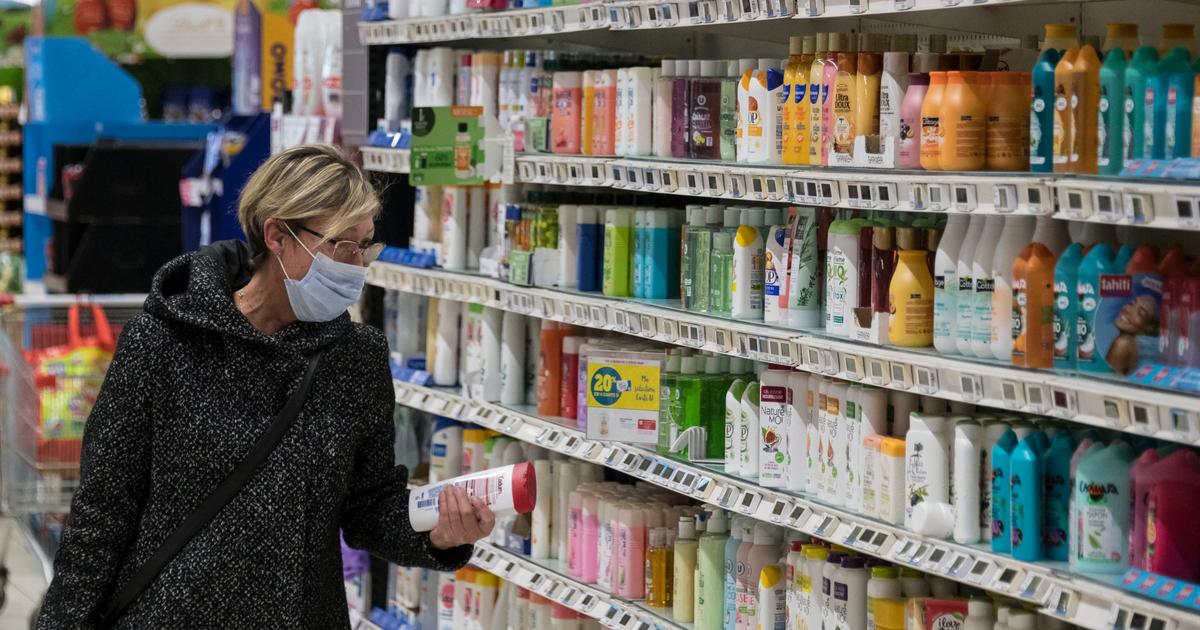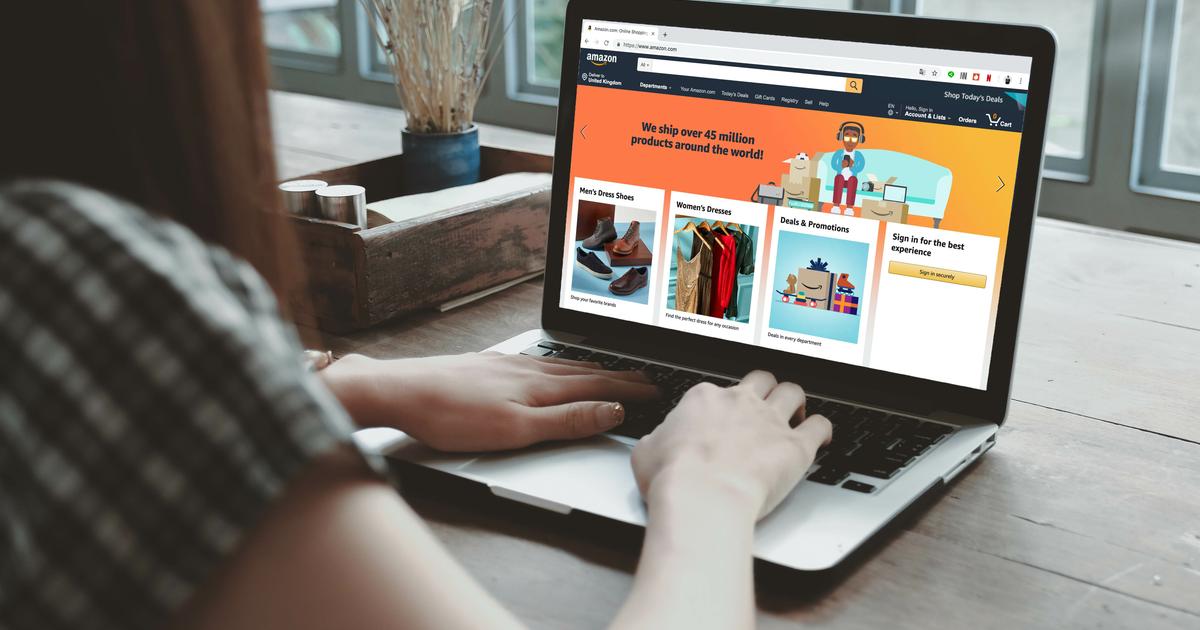March 2020, start of the first confinement imposed against the Covid-19 epidemic.
Assigned to their homes, the French spend the time by cooking good little dishes, but also leftovers.
Because the period made them discover that the races galore, for lunch and dinner, have a price.
The use of the Save Eat platform, which allows you to manage your fridge well by cooking leftovers, is exploding.
“Our website was in so much demand that it crashed our server,” recalls Isaure Tsassis, one of the two founders.
A happily repaired server, to the delight of its users (+ 20% in 2020).
They are called Save Eat, Too Good To Go, Frigo Magic, Geev, Phenix or even HopHopFood.
What do they have in common?
All these apps are riding the wave of the fight against waste, which not only allows you to do a good deed for the planet, but also to replenish your wallet at the same time.
A real groundswell.
“In 2020, spending related to food destocking jumped 11%, and 4.6% of households have used one of these apps at least once”, attests Emily Mayer of the Iri institute.
"The anti-waste is now a very strong expectation of consumers, and these apps are now part of the daily life of the French", abounds Lydia Rabine, of Kantar-Worldpanel, who for her part estimates the percentage of consumers at "6.5%" who love it.
Up to 300 euros per month in savings
It must be said that beyond the good deed, therefore, the induced gains can be very significant: "through us, a family of four can save up to 250 euros or 300 euros per month", estimates Jean Moreau, the founder of Phenix, an app that allows you to collect unsold items from merchants.
Examples?
On Phenix, you will find 50% reductions allowing you to buy an organic basket in a bakery for 4.60 euros rather than 9.20 euros, or even houseplants from Truffaut, worth 60 euros, sold off. at 20 euros.
READ ALSO>
Food donation anti-waste in times of Covid-19: "It's more than practical, it's essential!
"
On this application, the crisis resulted in 2020 by "a six-fold increase in downloads", underlines the founder.
But in terms of unsold sales at knockdown prices, the undisputed popesse of the market remains the Too Good To Go application, which claims 23 million surprise baskets saved since 2016, thanks to 16,000 partner merchants and 8.5 million employees. users.
"With us, a third of users come for financial reasons, a third are activists, and a third are a mixture of the two having, in addition, the desire to discover new businesses near them", brushes the director general, Sarah Chouraqui.
If Too Good To Go claims more money from partner merchants than Phenix (25% and 20% respectively), it does display an unbeatable price promise for consumers: discounts of up to - 75%!
"Suddenly, our baskets leave extremely quickly, sometimes in a few minutes, especially in supermarkets", dissects Sarah Chouraqui, who specifies that if "TGTG" is indeed more greedy vis-à-vis traders, "the money thus collected is used to finance awareness-raising actions among the general public, as recently on products with short dates which represent 10% of food waste ”.
More time to sort it out at home
If the apps selling off unsold products are a hit, all those facilitating donations between individuals have also been a resounding success for a year.
This is the case of Geev, who allows everyone to give, who, his old sofa, who, old dominoes, a children's book, clothes, but also, in 5% to 10% of cases, to the food.
This free app, "which now has 2.5 million users, has made it possible since its launch in 2017 to make seven million donations, mostly within a radius of one kilometer from home," said Florian Blanc, its founder.
In January and February 2021 alone, over a million new users registered.
"With the confinement, the curfew, the time spent at home is exploding, and people have time to sort it out," explains Florian Blanc.
At the other end of the chain, the precarious people hit by the crisis continue to increase.
The meeting takes place, naturally.
Morning essentials newsletter
A tour of the news to start the day
Subscribe to the newsletterAll newsletters
In the same mindset as Geev, HopHopFood has seen its downloads jump 150% in 2020, even though the site is not open to everyone.
“Donations go to a public in difficulty to whom social assistance, the CROUS or a social action center has given an access code”, explains the founder, Michel Montagu, who has seen “the number of 'students with the pandemic: they now represent two-thirds of our users, ahead of single-parent families ”.
Manage the contents of your fridge
The fight against waste also involves good management of… your fridge!
"We forget that the biggest waste comes from there: the French waste 3.3 million tons of food per year at home, that is to say three times more than the large distribution", recalls Isaure Tsassis, whose platform Save Eat allows not only to enter the expiration dates of the products you buy, but also to cook carrot tops to make pesto or to transform stale bread into gnocchi.
In this niche, Save Eat offers one more functionality than Frigo Magic which, for its part, aims above all to suggest recipes from a list of two or three ingredients.
Unsold sold off, donated food, optimal management of our cupboards… the fight against waste takes on different finery.
But it is now so deeply rooted in our culture that stores have been organized around this credo: the aptly named Nous anti-waste stores.
In these shops devoting a new era, products that will soon expire, look ugly, or have badly made labels are collected directly from manufacturers.
Consumers favor the concept (already profitable), again for both ethical and economic reasons.
So much so that the co-founder, Vincent Justin, decided in the summer of 2020 to create his own brand of anti-waste products: olive oil, yogurts made with damaged fruit, ham with poorly cut slices ... around forty products at knockdown prices have already been launched.
And that's only the beginning.
“All the initiatives which will offer this double“ economic advantage - ecological interest ”have a boulevard in front of them, because they resonate with the expectations of consumers,” concludes Emily Mayer of Iri.








/cloudfront-eu-central-1.images.arcpublishing.com/prisa/HMTVVV3HLFH5LDEHUMGY5HTJ6I.jpg)